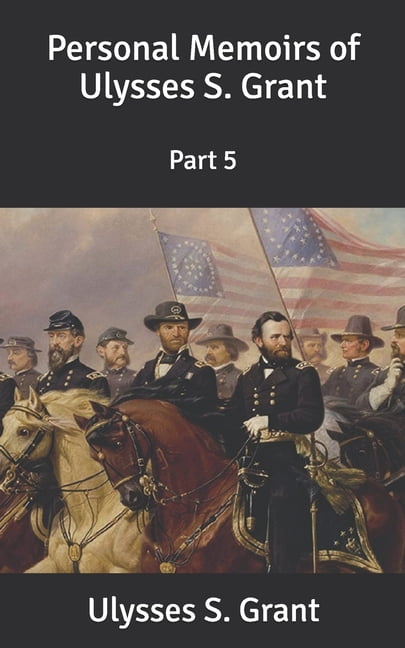
(Working in the tannery, among the bloody skins and the giant rats that gnawed on them, left young Ulysses permanently unable to eat less-than-well-done meat.) All sons are made in their father’s shade, and Grant’s pushy, braggart, loudmouthed father produced a quiet, outwardly obedient, and inwardly resistant son, who came to hate showing off. Ulysses’s father, Jesse Grant, was a hard-pushing small-time entrepreneur who started out as a tanner. It is a style of American Misery familiar from Mark Twain-the Scotch-Irish-American style, mirthless and Methodist and mercenary. The first pages of the book tell of Grant’s rise from a hardscrabble life in Point Pleasant, Ohio. The reason Reconstruction failed, and ended with the reimposition of an apartheid system, had to do with an exasperating coalition of self-styled Northern “reformers” and the openly revanchist, anti-Grant Southerners-misguided progressives making common cause with true reactionaries against a well-meaning middle-and also with a general battle fatigue that afflicted the nation. He pressed the cause of black equality under the law, and was consistently on the right side of Reconstruction-era issues-winning more heartfelt praise from Frederick Douglass than Lincoln ever did. He makes a convincing case that Grant actually behaved nobly, even heroically, while in the White House. Though he does the usual justice to the military saga of the Civil War, and Grant’s decisive part in it, his book aims to rehabilitate Grant as a politician and as President.

In a new biography, “ Grant” (Penguin Press), Ron Chernow, whose previous subjects include Washington and Hamilton (improbably launching the greatest musical-theatre work of our age), strenuously disputes the conventional view. Things are better now, but a quick survey of a Manhattan office showed that, while almost everyone had made a school trip to the Lincoln Memorial, not one had stopped to visit Grant’s Tomb. His tomb, on New York City’s Riverside Drive, had become, by the nineteen-nineties, so neglected that it was a national symbol of chaos. Journalists still cite the Grant Administration as among the most scandal-ridden and corrupt in American history. The brilliant general became the miserable President, fuelling the descent from glory into the Gilded Age. Though partial and prejudiced, to put it mildly, Adams’s vision of Grant as the author of America’s fatal five minutes has endured: Washington won his war and fathered his country Grant won his war but screwed over his.


“Grant’s nominations had the singular effect of making the hearer ashamed, not so much of Grant, as of himself,” he writes in his great third-person autobiography, “ The Education of Henry Adams.” His hopes that Grant would be George Washington had been delusional folly, Adams decided: “The progress of evolution from President Washington to President Grant alone was evidence enough to upset Darwin.” Crushed (at least in memory), he felt that a line had been crossed, permanently separating the high-minded, essentially intellectual inheritance of the Revolution from the American future. Instead, he heard, one after another, the names of mere time-servers and hack politicians and unknown cronies of the General. Foreseeing a renaissance of civic virtue after the sufferings of the Civil War, Adams-whose great-grandfather was the second President, and whose father had been Lincoln’s Ambassador to Great Britain-expected his reformist vision and his intellectual cohort to be brought forward to rule, as the Alexander Hamilton–Thomas Jefferson generation had been after the triumph of the Revolution. Henry Adams, as he reports in his memoirs, was breathlessly waiting in the Capitol Building in 1869 for word of the Cabinet appointments that would be made by the newly elected President Grant. It is one of the more improbably dramatic moments in American letters. President Grant’s lapses were minor, Ron Chernow argues, compared with his widely overlooked furtherance of racial justice.


 0 kommentar(er)
0 kommentar(er)
